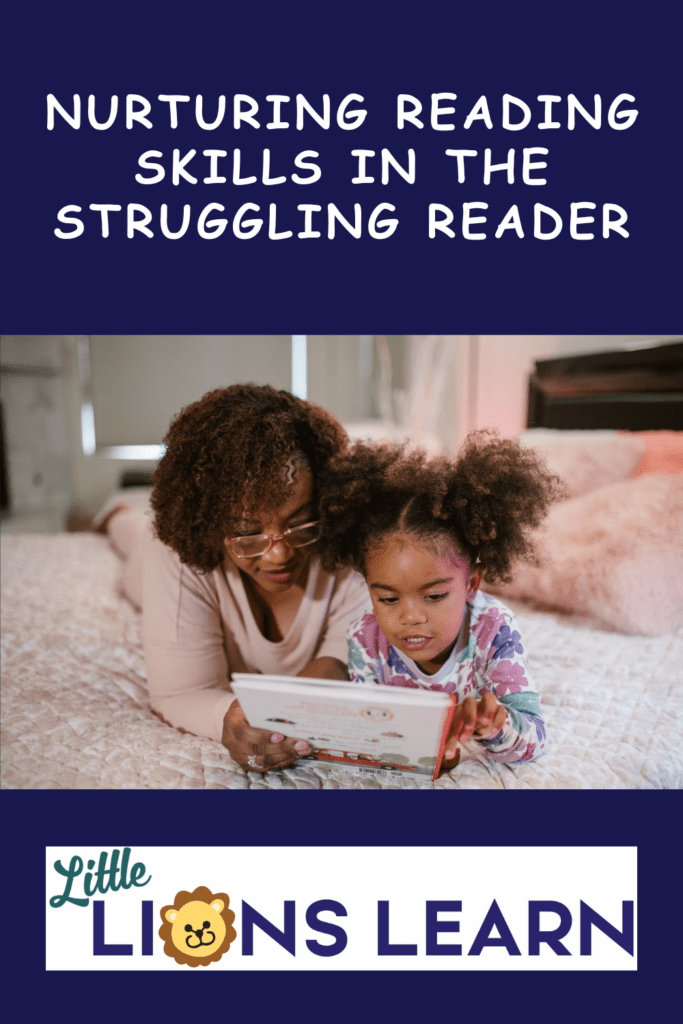How to Nurture Reading Skills in the Struggling Reader
Homeschooling offers a personalized and flexible approach to education, allowing parents to tailor their child’s learning experience. However, just like in traditional schooling, some challenges may arise. If you find that your homeschooled child is struggling or falling behind in reading, it’s important to address the issue with patience, understanding, and a strategic plan. In this blog post, we’ll explore practical steps in nurturing your child’s reading skills development and ensure they catch up effectively.
Assess and Understand the Situation
Before taking any action, it’s crucial to assess the situation. Determine the specific areas where your child is struggling. Is it decoding words, comprehension, fluency, or a combination of these? Identifying the root cause will help you tailor your approach accordingly.
Create a Supportive Environment
A conducive learning environment can greatly impact a child’s progress. Ensure that your homeschool space is comfortable, well-lit, and free from distractions. Encourage a positive attitude towards reading by making it an enjoyable and engaging activity.

Adjust Your Approach
Flexibility is one of the advantages of homeschooling. If your current teaching methods aren’t yielding the desired results, consider trying different approaches. For instance, incorporate more hands-on activities, interactive games, or multimedia resources to make reading lessons more engaging.
Set Realistic Goals
Establish achievable reading goals for your child. Break down these goals into smaller milestones, making it easier to track progress. Celebrate each achievement, no matter how small, to boost your child’s confidence and motivation.
Individualized Instruction
Tailor your instruction to your child’s unique learning style. Some children learn better through visual aids, while others may benefit from auditory or kinesthetic techniques. Adjust your teaching methods to match your child’s preferences.
Reading Aloud
Reading aloud to your child can foster a love for reading and improve their listening skills. Choose age-appropriate books that capture their interests, and take turns reading paragraphs or pages together. This activity can help improve vocabulary, comprehension, and fluency.

Phonics and Word Recognition
For early readers or struggling readers, focus on phonics and word recognition activities. Phonics teaches the relationship between letters and sounds, aiding in decoding unfamiliar words. Use phonics games, flashcards, and word-building exercises to reinforce these skills.
Comprehension Strategies
Comprehension is key to meaningful reading. Teach your child comprehension strategies, such as predicting, summarizing, making connections, and asking questions. Encourage discussions about the books they read to enhance their understanding.
Reading Interventions
If your child’s reading difficulties persist, consider seeking professional help. A reading specialist or educational therapist can provide targeted interventions and personalized strategies to address specific challenges. Here are some ideas to try first.
Patience and Positive Reinforcement
Rome wasn’t built in a day, and reading proficiency takes time to develop. Be patient with your child’s progress and provide constant encouragement. Celebrate small victories and offer positive reinforcement to keep their spirits high.
Conclusion
When a homeschooled child is behind in reading, it’s important to approach the situation with empathy, flexibility, and a proactive mindset. By assessing the situation, creating a supportive environment, adjusting your approach, setting realistic goals, and incorporating various strategies, you can effectively nurture your child’s reading skills. Remember, every child’s journey is unique, and with your guidance and support, your child can catch up and develop a lifelong love for reading.

